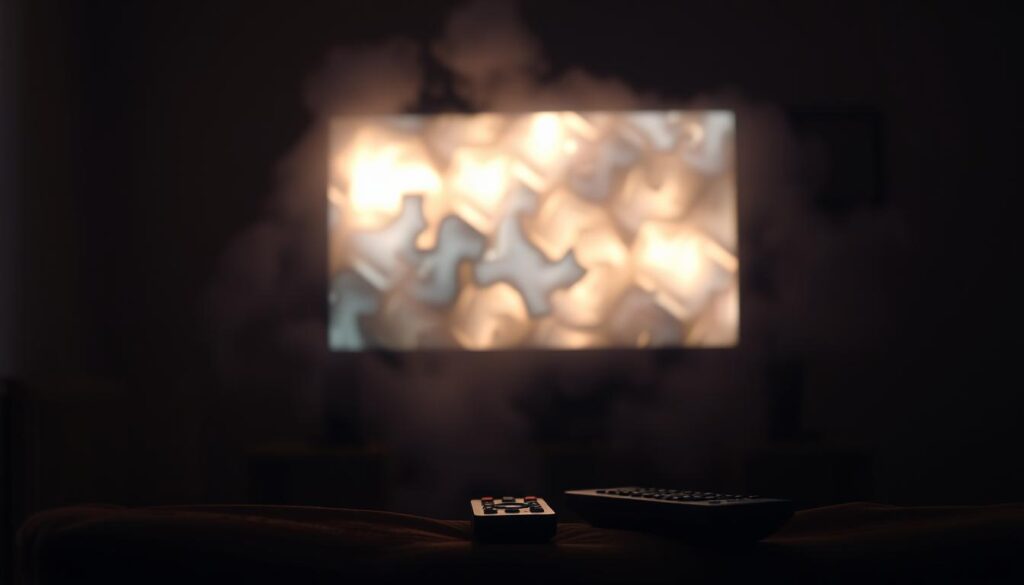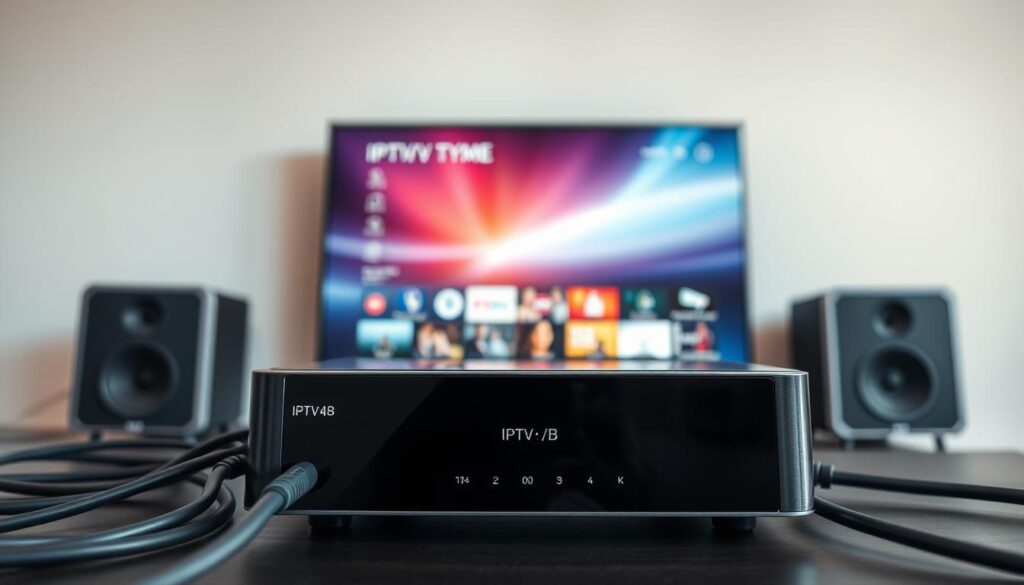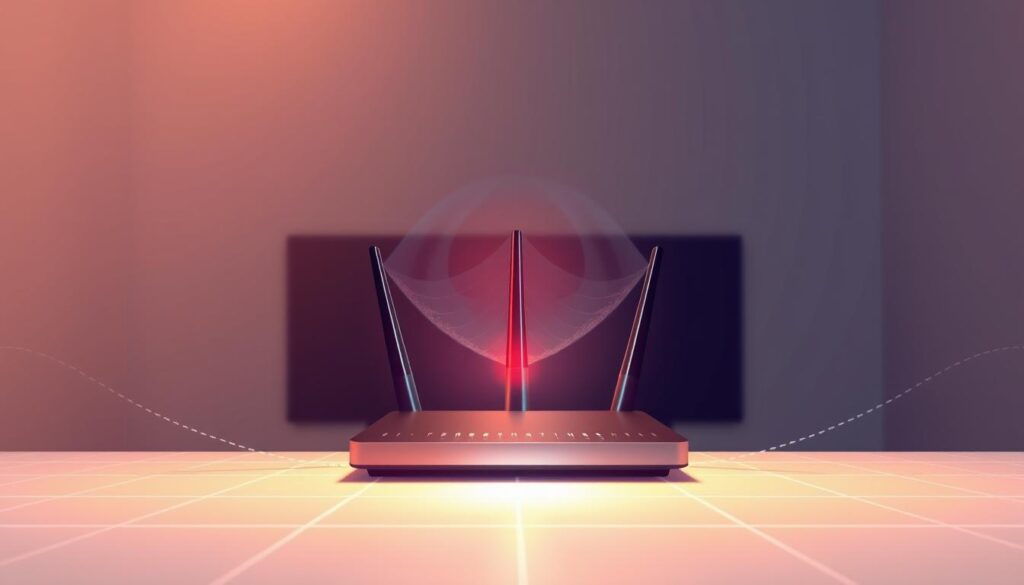Are you tired of experiencing buffering, lagging, and freezing while enjoying your favorite TV channels through IPTV services? These frustrating issues can significantly impact your streaming experience, making it essential to identify and resolve them quickly. Whether you’re watching on your FireStick, Android TV, or Smart TV, a smooth streaming experience is crucial for entertainment.
Common streaming issues often stem from slow internet speed, overloaded servers, or outdated hardware. Understanding the root causes of these problems is vital for effective iptv troubleshooting. By addressing these challenges, you can enjoy uninterrupted, high-quality streaming. For more detailed assistance, you can visit our support page at IPTV Troubleshooting and Support.
Ready to enhance your streaming experience? Get your free IPTV trial now and enjoy 1 full month of premium streaming for just $6.95 at GetMaxTV.com.
Key Takeaways
- Identify common IPTV streaming issues and their causes.
- Learn practical solutions to fix buffering, lagging, and freezing.
- Understand the importance of internet speed for smooth streaming.
- Discover how to optimize your IPTV device for better performance.
- Explore the benefits of regular software and firmware updates.
Understanding IPTV Streaming Issues
IPTV streaming problems can arise from various sources, and identifying these issues is key to a smooth viewing experience. IPTV streaming relies on a stable internet connection to deliver high-quality video content to your devices.
Several factors can impact the quality of your IPTV streaming experience. These include the resolution you choose, the stability of your internet connection, and the video compression techniques used by your IPTV service.
What Causes IPTV Buffering and Freezing
Buffering and freezing are common issues that can disrupt your IPTV streaming experience. These problems often result from inadequate internet speed, network congestion, or bitrate fluctuations during streaming.
- Insufficient internet speed for the chosen resolution
- Network congestion due to multiple device usage
- Bitrate fluctuations affecting video quality
How Streaming Quality Affects Your Experience
The quality of your IPTV streaming experience is directly related to the streaming quality. Higher quality streams require faster and more stable internet connections.
| Streaming Quality | Minimum Internet Speed Required |
|---|---|
| Standard Quality | 5 Mbps |
| 720p HD | 10 Mbps |
| 1080p HD | 20 Mbps |
| 4K | 30 Mbps |
Understanding the relationship between your internet speed and the streaming quality can help you make the necessary adjustments to enjoy a seamless IPTV streaming experience.

Diagnosing Your IPTV Connection Problems
Diagnosing IPTV connection problems requires a systematic approach to identify and resolve issues. A stable internet connection is crucial for uninterrupted IPTV streaming. To diagnose your IPTV connection problems, you need to check several key factors that affect your streaming quality.
Testing Your Internet Speed for IPTV
One of the primary steps in diagnosing IPTV connection problems is testing your internet speed. IPTV requires a minimum bandwidth to stream content smoothly. Limited bandwidth from the streaming source can cause buffering and freezing. There are two main reasons for this lack of bandwidth: excessive traffic from your ISP or “garbage” in the traffic, such as when using torrents or download managers simultaneously with IPTV.
To test your internet speed, you can use online speed test tools. Ensure you test your speed during different times of the day to account for peak usage hours. If your internet speed is below the recommended threshold for IPTV streaming, consider upgrading your plan or contacting your provider.

Identifying Network Congestion Issues
Network congestion is another critical factor that can affect your IPTV streaming experience. To identify congestion issues, monitor your network during different times of the day. Use network monitoring tools to see which devices and applications are consuming bandwidth on your home network.
- Check for background downloads, updates, or other streaming services that might be competing for your available bandwidth.
- Identify if multiple users on your network are streaming simultaneously, which can divide your available bandwidth.
- Look for signs of ISP throttling, which often occurs during evening hours when network usage is highest.
By understanding these factors and taking steps to manage your network, you can significantly improve your IPTV streaming experience.
Internet Connection Optimization for IPTV
A well-optimized internet connection is the backbone of a smooth IPTV viewing experience. To achieve this, several factors need to be considered and adjusted accordingly.
Minimum Internet Speed Requirements
For a seamless IPTV experience, your internet speed plays a critical role. The minimum internet speed required depends on the quality of the stream. For standard definition (SD), a speed of at least 3 Mbps is recommended. For high definition (HD), you’ll need at least 8 Mbps, and for ultra-high definition (UHD), 25 Mbps or more is ideal. Ensuring your internet plan meets these requirements is the first step towards optimizing your IPTV experience.
Wired vs. Wireless Connections
When it comes to connecting your IPTV devices, you have the option of using either a wired or wireless connection. A wired connection, using an Ethernet cable, provides a more stable and reliable connection compared to Wi-Fi. This is because wired connections are less susceptible to interference and can maintain a consistent data transfer rate. For critical IPTV setups, consider using a wired connection for your primary streaming device.

Bandwidth Management Tips
Managing your bandwidth effectively is crucial for uninterrupted IPTV streaming. Here are some tips to help you manage your bandwidth:
- Schedule large downloads during non-viewing hours.
- Implement Quality of Service (QoS) settings on your router.
- Limit the number of connected devices during streaming.
- Close bandwidth-intensive background applications.
For more detailed guidance on configuring your IPTV system, you can visit this resource to learn how to set up and configure your IPTV for a personalized TV experience.
| Streaming Quality | Minimum Internet Speed Required |
|---|---|
| Standard Definition (SD) | 3 Mbps |
| High Definition (HD) | 8 Mbps |
| Ultra-High Definition (UHD) | 25 Mbps |
IPTV Troubleshooting: Hardware Solutions
To enjoy uninterrupted IPTV streaming, it’s essential to have the appropriate hardware in place. Hardware plays a significant role in determining thequalityof your IPTVservice. By optimizing or upgrading your hardware, you can significantly improve your IPTV streaming experience.
Optimizing Your Router Settings
Optimizing your router settings is a crucial step in ensuring smooth IPTV streaming. Invest in a modern router that supports the latest Wi-Fi standards (802.11ac or Wi-Fi 6) for improved throughput and device handling. Consider the following tips to optimize your router settings:
– Update your router’s firmware regularly to ensure you have the latest features and security patches.
– Use Quality of Service (QoS) settings to prioritize IPTV traffic, ensuring that your streaming devices receive sufficient bandwidth.
Upgrading Equipment for Better Performance
Upgrading your equipment can also significantly enhance your IPTV streamingperformance. Consider dedicated IPTV boxes designed specifically for streaming rather than general-purposedeviceswith emulators. For a better IPTV experience athome, you may also:
– Upgrade your streaming device to models with more RAM and processing power for smoother playback of high-definition content.
– Add mesh Wi-Fi systems to eliminate dead zones in larger homes and ensure a consistent signal throughout.
– Install Ethernet over Power adapters to create wired connections in locations where running cables isn’t practical.
– Consult with your IPTV provider about recommendedequipmentthat’s optimized for their specificservice, such as those found atGetMaxTV, which can offer superior customer support and optimized IPTV systems.
By implementing these hardware solutions, you can significantly improve thequalityof your IPTV streaming experience.
IPTV Troubleshooting: Software Solutions
Software plays a crucial role in IPTV streaming, and optimizing it can resolve many issues. IPTV services often rely on applications with built-in streaming capabilities or third-party IPTV players. Ensuring these applications are optimized and updated is crucial for smooth streaming.
Clearing Cache and App Data
One common software solution is clearing the cache and app data. Over time, IPTV applications accumulate cache and data that can cause issues. Clearing this data can resolve problems such as freezing or buffering.
- To clear cache and data, go to your device’s settings and find the IPTV application.
- Select the option to clear cache and data, and confirm the action.
- Restart the application and check if the issue is resolved.
Updating IPTV Applications and Firmware
Keeping your IPTV applications and device firmware updated is essential. Outdated applications can contain bugs that are fixed in newer versions, improving performance and stability.
| Update Type | Description | Benefits |
|---|---|---|
| Application Updates | Regularly check for updates to your IPTV application through your device’s app store or the developer’s website. | Improved performance, bug fixes, and new features. |
| Firmware Updates | Update your device’s operating system and firmware regularly. | Maintains compatibility with streaming applications and improves overall device performance. |
By following these software troubleshooting steps, you can significantly improve your IPTV streaming experience. Regular maintenance, such as clearing cache and keeping applications updated, ensures that your IPTV service runs smoothly.
Solving IPTV Buffering and Freezing Issues
IPTV buffering and freezing can be frustrating, but there are several steps you can take to resolve these issues. Buffering and freezing are common problems that can disrupt your streaming experience, but understanding the causes and applying the right fixes can significantly improve your IPTV service.
Quick Fixes for Immediate Relief
For immediate relief from IPTV buffering and freezing, start by checking your internet connection. Ensure that your internet speed meets the minimum requirements for IPTV streaming. A simple restart of your router can also resolve connectivity issues. Additionally, closing unnecessary applications on your device can help allocate more bandwidth to your IPTV service.
- Restart your router to refresh your internet connection.
- Close other bandwidth-intensive applications.
- Check for any software updates for your IPTV app.
Long-Term Solutions for Persistent Problems
For persistent IPTV buffering and freezing issues, consider long-term solutions. Upgrading your internet plan to a higher speed tier can help if you consistently experience buffering. Investing in a quality mesh Wi-Fi system can ensure consistent coverage throughout your home. Moreover, using a dedicated VPN service optimized for streaming can prevent ISP throttling, which often causes buffering.
- Upgrade your internet plan for higher speeds.
- Implement a mesh Wi-Fi system for better coverage.
- Use a VPN service to prevent ISP throttling.
If these solutions fail, it may be time to consider switching to a more reliable IPTV provider that offers better server infrastructure and customer support.
Using VPN to Improve IPTV Performance
A VPN can be a vital tool for IPTV subscribers looking to overcome common streaming hurdles. By encrypting your internet traffic and masking your IP address, a VPN can significantly improve your IPTV streaming experience.
How VPNs Prevent ISP Throttling
One of the primary ways a VPN improves IPTV performance is by preventing ISP throttling. ISPs often throttle bandwidth when they detect streaming activities, leading to buffering and poor video quality. A VPN encrypts your internet traffic, making it difficult for your ISP to detect that you’re streaming IPTV content, thus preventing throttling and ensuring a smoother viewing experience.
By choosing a reliable VPN service like ExpressVPN, you can enjoy uninterrupted IPTV streaming. ExpressVPN is known for its fast servers and robust encryption protocols, making it an ideal choice for IPTV enthusiasts.
Best VPN Settings for IPTV Streaming
To get the most out of your VPN for IPTV streaming, certain settings can be optimized. Here are some tips:
- Choose the right protocol: Protocols like WireGuard or OpenVPN UDP offer a good balance between security and speed.
- Select a nearby server: Connecting to a server that’s geographically close can minimize latency.
- Enable split tunneling: This feature allows you to route only your IPTV traffic through the VPN, keeping other applications on your regular connection.
- Disable unnecessary security features: Features like double VPN or Tor over VPN can significantly reduce speed without adding necessary benefits for streaming.
By following these tips and using a high-quality VPN service, you can significantly enhance your IPTV streaming performance. Try our IPTV service with a free trial and enjoy premium streaming for just $6.95 per month at GetMaxTV.com.
Troubleshooting Device-Specific IPTV Issues
The type of device used for IPTV streaming can significantly impact the quality of the service. Different devices have unique requirements and potential issues that can affect IPTV performance.
FireStick and Android TV Solutions
For FireStick and Android TV users, ensuring that the device’s software is up to date is crucial. Clearing the cache and data of the IPTV app can also resolve many issues. Additionally, restarting the device can often fix connectivity problems.
- Update your FireStick or Android TV to the latest software version.
- Clear the cache and data of your IPTV application.
- Restart your device regularly to maintain optimal performance.
Smart TV Optimization Tips
Smart TVs offer a seamless IPTV experience, but they require some optimization. Ensuring a stable internet connection and updating the TV’s firmware are essential steps. Some Smart TVs may also benefit from adjusting their network settings.
| Optimization Tip | Description |
|---|---|
| Update Firmware | Keep your Smart TV’s firmware up to date for the best IPTV performance. |
| Stable Internet | Ensure your internet connection is stable and strong. |
| Network Settings | Adjust your Smart TV’s network settings for optimal IPTV streaming. |
PC and Mobile Device Fixes
For PC and mobile device users, closing resource-intensive applications can improve IPTV streaming. Updating web browsers and disabling hardware acceleration can also help. On mobile devices, enabling battery optimization exceptions for your IPTV app can prevent interruptions.
- Close unnecessary applications on your PC or mobile device.
- Update your web browser to the latest version.
- Disable hardware acceleration if you experience video rendering issues.
Conclusion: Ensuring Smooth IPTV Streaming
By systematically addressing potential issues, you can significantly improve your IPTV streaming quality and overall viewing experience. Successful IPTV troubleshooting requires a comprehensive approach that starts with the simplest solutions before moving to more complex ones.
Regular maintenance of your IPTV system is crucial. This includes clearing cache and updating software to prevent many common issues before they occur. Investing in quality equipment and a reliable internet connection provides the foundation for consistent streaming performance.
Understanding the relationship between your network capabilities and streaming quality helps you make appropriate adjustments for optimal viewing. Using a VPN can significantly improve your streaming experience by preventing ISP throttling and accessing geo-restricted content. Additionally, device-specific optimizations ensure that your hardware is performing at its best for your IPTV service.
When persistent issues occur, don’t hesitate to contact your service provider’s support team, as the problem may be on their end. For a hassle-free IPTV experience, consider trying a reputable service with a free trial. For instance, GetMaxTV.com offers a 1-month premium streaming trial for just $6.95. You can contact them on WhatsApp at https://wa.me/message/OZ4NORVZQTYAC1.
Remember that troubleshooting is often an iterative process – what works for one situation may not work for another. With the knowledge from this guide, you’re now equipped to diagnose and resolve most common IPTV streaming issues quickly and effectively. By following these tips and maintaining your IPTV system, you can enjoy a seamless and enjoyable streaming experience.
FAQ
What is the minimum internet speed required for smooth IPTV streaming?
For standard definition (SD) streaming, a minimum speed of 5 Mbps is recommended, while high definition (HD) streaming requires at least 10 Mbps, and 4K streaming needs 25 Mbps or more.
Why is my IPTV service buffering or freezing?
Buffering or freezing can be caused by a slow internet connection, network congestion, or issues with your service provider’s servers. Try checking your internet speed, restarting your router, or contacting your provider for assistance.
Can a VPN improve my IPTV streaming experience?
Yes, a VPN can help prevent ISP throttling, which can improve your IPTV streaming quality. By encrypting your internet traffic, a VPN can also help you bypass geo-restrictions and access more content.
How do I optimize my router settings for IPTV?
To optimize your router settings, ensure that Quality of Service (QoS) is enabled, and prioritize your IPTV device or application. You can also try updating your router’s firmware and configuring port forwarding if necessary.
What are the benefits of using a wired connection for IPTV?
A wired connection provides a more stable and reliable connection, reducing the risk of buffering or freezing. It also typically offers faster speeds and lower latency compared to wireless connections.
How do I troubleshoot IPTV issues on my FireStick or Android TV?
Try restarting your device, clearing cache and app data, or uninstalling and reinstalling the IPTV application. You can also check for firmware updates and ensure that your device is configured correctly.
Can I use IPTV on multiple devices at the same time?
Yes, most IPTV services allow you to stream on multiple devices simultaneously. However, be aware that this may require a stronger internet connection and could impact your streaming quality.
How do I contact my IPTV service provider for support?
You can usually find contact information on your provider’s website, including phone numbers, email addresses, or live chat support. Be prepared to provide details about your issue and account information.



